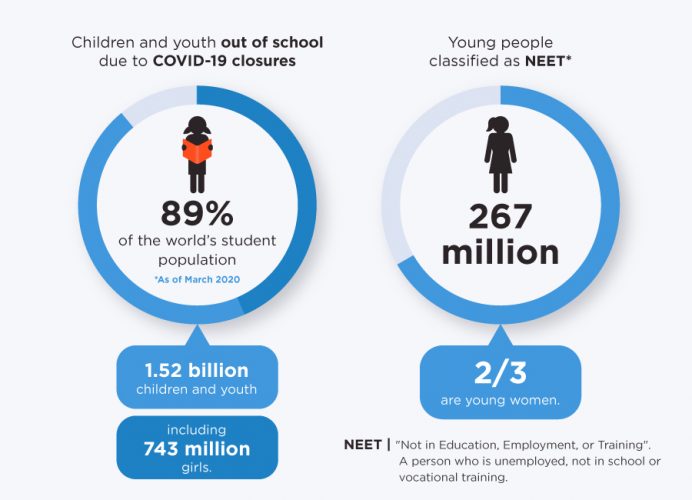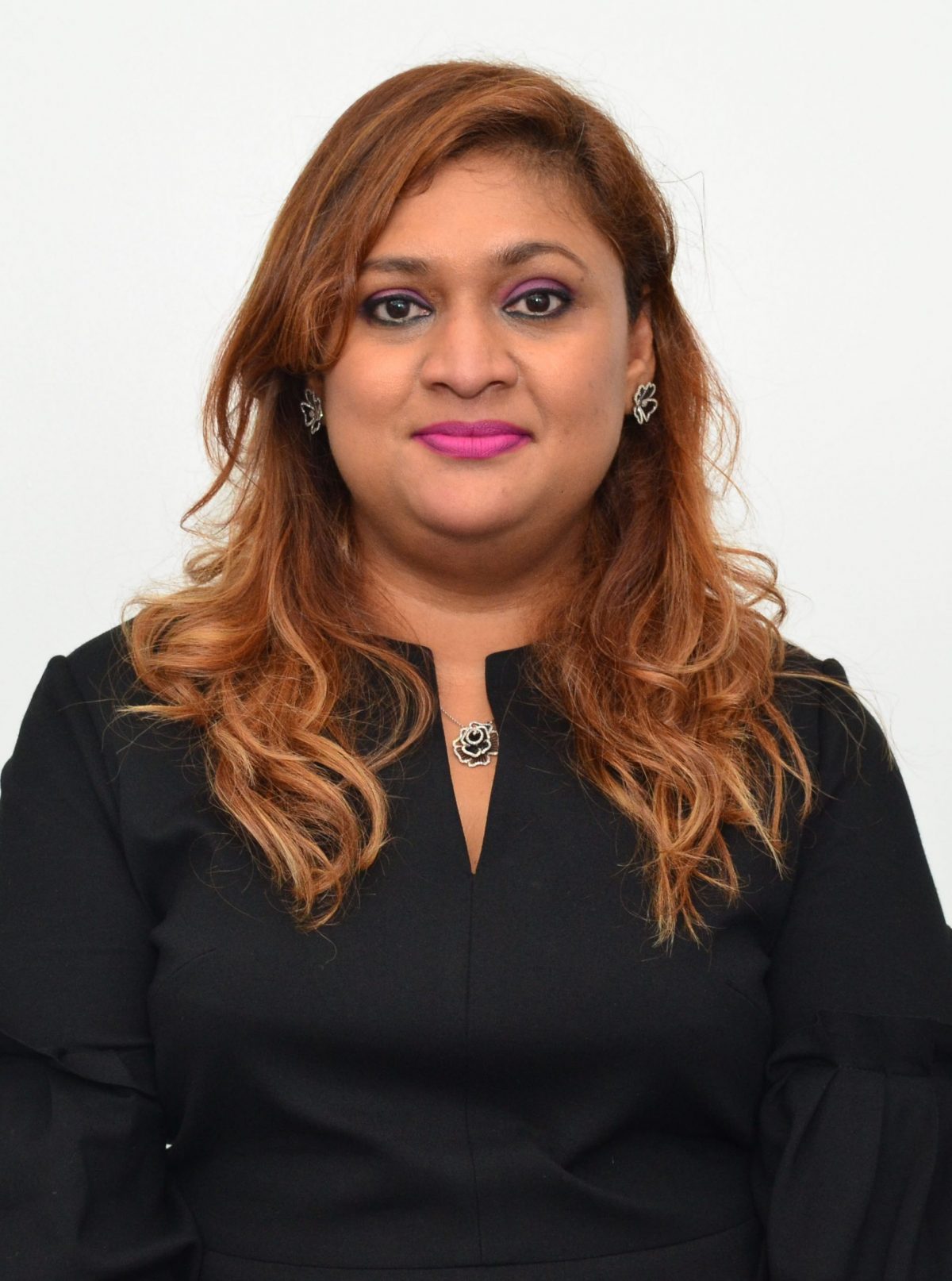One of the biggest fallouts from the COVID-19 pandemic is the children who will drop out of the formal school system without completing their education. In fact, UNICEF estimates that more than 1 billion children are at risk of falling behind due to school closures aimed at containing the spread of the virus. In Guyana, daily, children are seen in the streets, including some who are working, and there are real concerns that remote learning is not reaching thousands.
Education Minister Priya Manickchand is well aware of these issues. During an interview with Stabroek Weekend she accepted that even though her ministry has been employing various forms of remote learning to reach the nation’s children, some are just not being reached. She pointed out that one of the problems when children are not in physical schools (for Guyana it has been since March) for such a length of time there will be learning loss as well as dropouts.

“That is one of our big concerns and we have been making some feverish attempts to engage our children,” the minister said. She admitted that the Guyana Learning Channel is inadequate as it basically provides one hour of learning per level a day, which is coupled with various online methods employed by schools. The printing of weekly lessons is one of the more effective methods employed by the ministry.
Psychologist Wil Campbell pointed out that supporting students in danger of dropping out under normal circumstances is extremely difficult.
“Under these circumstances [children being out of school for months because of the pandemic] it would require superhuman interventions,” Campbell, who is the Head of Youth and Community Develop-ment Studies at the University of Guyana and the Country Consultant for OAS Digital Education (Profuturo) Project, Guyana, said.
He suggested that the training of teachers in online education resource delivery (an activity he acknowledges is already in progress) will go a long way. Also he recommended that material support be provided to disadvantaged families both for everyday needs and educational supplies. According to a recent study conducted by UNICEF, at least a third of the world’s schoolchildren – 463 million – were unable to access remote learning when COVID-19 shuttered schools.
“The sheer number of children whose education was completely disrupted for months on end is a global education emergency. The repercussions could be felt in economies and societies for decades to come,” Henrietta Fore, UNICEF Executive Director said in announcing the finding.

The report used a globally representative analysis on the availability of home-based technology and tools needed for remote learning among pre-primary, primary, lower-secondary and upper-secondary schoolchildren, with data from 100 countries. Data included access to television, radio and internet, and the availability of curriculum delivered across these platforms during school closures.
The data primarily stemmed from the UNESCO-UNICEF-World Bank Survey on National Education Responses to COVID-19 School Closures (June-July 2020), as well as household microdata from sources like Multiple Indicator Cluster Surveys (MICS), Demographic and Health Surveys (DHS).
Strain on stakeholders
According to Campbell, the pandemic and the necessary measures that have been implemented to reduce the spread of the disease have put a strain on stakeholders in education.
“Among those affected are parents who are hard pressed to provide multiple devices and internet access to support their children’s learning and children who must now adjust to acquiring their education via distance education under difficult circumstances,” he said.
The psychologist also pointed that many were struggling in school to begin with and the challenges to learning imposed by the migration to virtual classrooms services multiply the difficulties. And, of course, he noted, this could lead to frustration. Additionally, there are those for whom there is little intrinsic motivation to pursue formal education. School, for such children, provides opportunities for social interaction.
“Virtual classrooms will not satisfy this need,” Campbell pointed out.
On the other hand, others may feel pressured because of their parents’ financial struggles and Campbell revealed that he has spoken to young men who feel responsible for going and “getting it” so they could provide some measure of support for their economically depressed mothers and grandmothers. Some are also actively encouraged by adults to leave school to help during the current difficulty and this could only serve to add to the factors pushing them out of school.
“It is clear from the number of school-age children roaming the streets during school hours in many neighbourhoods that many are not benefitting from any school-related activities; some because no support is being provided by their schools, others because they are unable to access the support,” Campbell said.
Then there are others who are not benefiting because the support being provided by their schools is not the right fit for their particular needs.
Printed worksheets
Meanwhile, Minister Manickchand, underscoring the importance of the printed worksheets that are now being provided through the schools for students, noted that while initially they were just for hinterland students who have no internet access, they are now being done across the country as the need is there.
The worksheets are being printed exactly in the format the syllabus would have been provided in the classroom. Notes are given and then there is the activity section where children are asked to answer questions.
There are also efforts being made through the various schools for the worksheets to be marked. However, the minister was quick to note that nothing the ministry employs will be enough to replace a trained teacher in a physical classroom.
A teacher in a small hinterland community, who preferred to remain anonymous, told Stabroek Weekend that over 90% of her school’s population is being engaged through the printed worksheets. However, she said, the difficulty is the lack of assistance from their parents as the majority of them are unable to help and they in turn have to seek the teachers’ assistance. Most of the teachers live in the community so they accommodate parents and children as far as possible.
“They are not teachers; it is really new to them. They are farmers and assisting their children is also taking up their time and they have no other source of income…,” the teacher said.
But while primary school children might be engaged, some at the secondary level are not fully engaged even though the worksheets are provided. At this level it is even more difficult for the parents to assist their children and not all the secondary teachers live nearby so this puts the older children at a disadvantage.
Exams classes
There is likelihood that school for fifth and sixth form students will be opened before the end of the year as they are due to sit CXC examinations next year. Manickchand and other stakeholders have been meeting with teachers and parents virtually to discuss this issue and the minister has also been visiting schools to examine their readiness to safely reopen their doors to these students.
She pointed out that there is a problem with the exams class as Guyana is a member of the Caribbean Examinations Council and while there have been engagements with the council they are still unsure as to what the 2021 CSEC and CAPE examinations will look like.
“They don’t know yet what form it is going to take and we don’t believe they are being secretive, they just have not decided,” she said.
She explained that one of the considerations is the fact that the rest of the world is opening and so colleges and universities are going to be open to accept students. Caribbean children will not be able to further their education if they do not write the local examinations. The School Based Assessments (SBAs) require a practical component that cannot be done at home, the minister noted, while adding that there has to be some kind of face-to-face engagement.
From the stakeholders’ meetings, the minister said, it is obvious that the system is not delivering what should be delivered for the students to be ready for the 2021 examinations. Parents, she said, have complained about their children not being fully engaged and yet some do not have internet or devices while teachers have also complained that they have held classes, yet some children have not been turning up. The minister said there are some teachers who are already in the classroom with their students without permission as they pointed to the need to complete the SBAs. She said the ministry does not want teachers to break the rules and as a result it is attempting to get the schools ready, ensuring that the sanitation blocks are ready, and providing students and teachers with face masks, teachers with face shields as well as vitamins and hand sanitisers so that they can remain safe.
And in an attempt to ensure that all the exam classes return, the minister said that on the first day when the doors are reopened there will be a simplified form that will have to be filled out by teachers in an effort to track the children who are absent. Attempts would then be made to contact those who are absent and see what assistance they need to return to the classroom.
The minister said some teachers have raised the issue of their own underlying health concerns, and also the fact that they have very young children and her suggestion is that they could make arrangements with their colleagues where they do the teaching and the teachers who are at home can mark all the SBAs. “However, I have warned that their colleagues might find it hard to do if they, for example, see them out enjoying life, maybe taking photographs on the seawalls etc,” the minister said.
She said the schools will be left to create their own timetables but in cases where they are unable to do so then the ministry will step in and assist.


